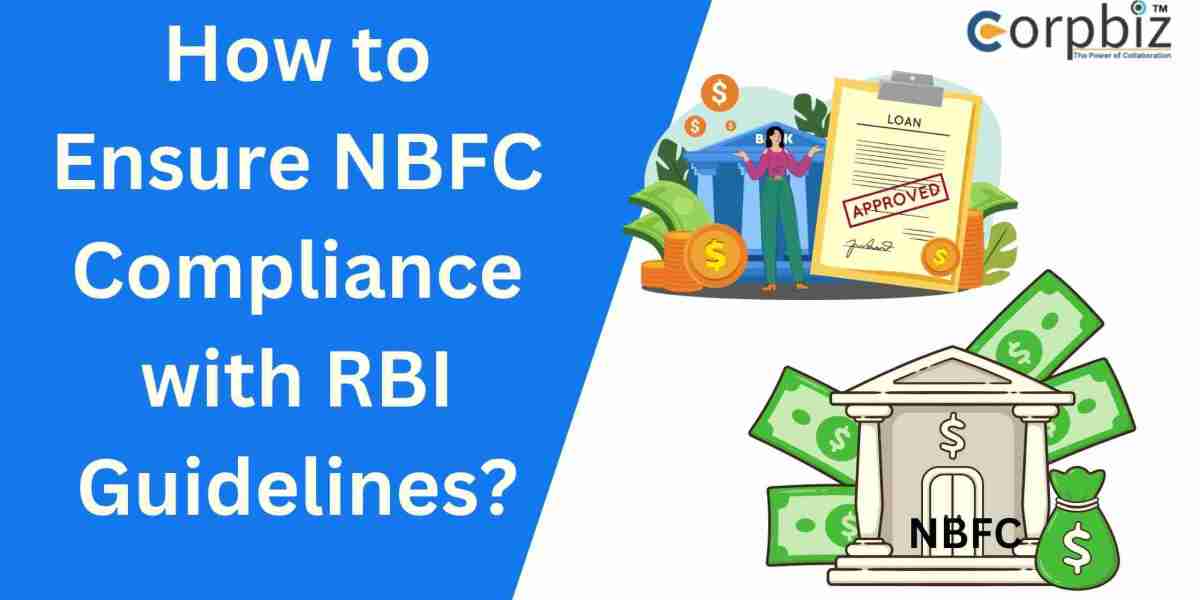Running a Non-Banking Financial Company (NBFC) in India can be a great business opportunity, but it comes with strict rules. The Reserve Bank of India (RBI) keeps a close watch to ensure NBFCs operate safely, protect customer money, and maintain trust in the financial system.
If you own an NBFC or plan to start one, you must follow RBI guidelines at every step. Failure to comply can lead to heavy penalties, suspension of your license, or even closure of your business.
In this guide by Corpbiz, we will explain how to ensure your NBFC stays compliant with RBI rules — in simple words — along with the key licenses and approvals you might need, like NBFC registration with RBI, RBI Account Aggregator License, P2P Lending License, and PPI License.
1. Understand the Basics of NBFC Compliance
Before we talk about how to follow the rules, you need to know what they are. NBFCs are regulated under the Reserve Bank of India Act, 1934. RBI monitors NBFCs to make sure they are financially strong, transparent, and follow ethical lending practices.
The most important first step is NBFC Registration with the RBI. Without this, you cannot legally operate as an NBFC in India. Once registered, you must submit regular reports, maintain certain financial ratios, and follow RBI’s customer protection guidelines.
2. Key RBI Guidelines NBFCs Must Follow
Here are some of the main compliance requirements for NBFCs:
Maintain Minimum Net Owned Funds (NOF): RBI requires NBFCs to have a minimum net worth, usually ₹2 crore for most NBFCs, but it can vary depending on the type of NBFC license.
Submit Regular Returns: Financial statements, asset classification reports, and other filings must be submitted on time.
KYC & AML Compliance: Follow Know Your Customer (KYC) and Anti-Money Laundering (AML) rules to prevent fraud and illegal transactions.
Fair Practices Code: Treat customers fairly, avoid misleading advertising, and be transparent about interest rates and charges.
Maintain Capital Adequacy Ratio (CAR): Ensure you have enough capital to cover risks in your lending portfolio.
Avoid Unfair Lending: Follow RBI’s rules on recovery practices to protect borrowers from harassment.
3. Important Licenses and Registrations for NBFC Operations
Depending on the services you want to offer, your NBFC may need additional RBI approvals.
a) RBI Account Aggregator License
An Account Aggregator (AA) helps customers share their financial data securely between different institutions with their consent. If your NBFC plans to offer such services, you must apply for an RBI Account Aggregator License.
b) P2P Lending License – Apply Online
Peer-to-Peer (P2P) lending platforms connect borrowers with individual lenders. If your NBFC wants to run a P2P platform, you must apply online for a P2P Lending License with RBI. The rules ensure customer money is safe, interest rates are reasonable, and risks are clear to all parties.
c) PPI License – Apply Online
A Prepaid Payment Instrument (PPI) allows customers to load money into a digital wallet or prepaid card for purchases. If your NBFC wants to issue wallets, gift cards, or prepaid accounts, you need to apply online for a PPI License from RBI.
4. How to Stay Compliant – Step-by-Step
Step 1 – Get Proper Registration
Apply for NBFC Registration with RBI through the online COSMOS portal.
Submit documents like the company incorporation certificate, net worth proof, business plan, and background details of directors.
Step 2 – Build a Compliance Team
Hire a compliance officer or work with a legal service provider like Corpbiz who understands RBI regulations.
Keep track of changes in rules and update your policies.
Step 3 – Maintain Proper Records
Keep customer KYC, loan documents, repayment history, and financial records safe and updated.
Ensure all reports are filed within deadlines.
Step 4 – Conduct Internal Audits
Regularly check your books, loan processes, and KYC compliance to spot problems early.
Step 5 – Train Your Staff
Teach employees about RBI guidelines, customer data protection, and ethical lending.
Step 6 – Report to RBI on Time
File monthly, quarterly, and annual returns as per RBI’s schedule.
Non-filing can lead to penalties and loss of reputation.
5. Common Mistakes NBFCs Must Avoid
Starting operations without NBFC Registration with RBI.
Ignoring customer grievance redressal mechanisms.
Mixing customer funds with business funds.
Charging hidden fees or violating interest rate rules.
Not updating KYC details regularly.
6. Why Work with Corpbiz for NBFC Compliance?
At Corpbiz, we have helped hundreds of businesses get NBFC Registration with RBI and maintain compliance. Whether you need an RBI Account Aggregator License, want to apply online for a P2P Lending License, or need a PPI License, our experts guide you through the process from start to finish.
We ensure your applications are accurate, complete, and in line with RBI’s latest requirements — saving you time, avoiding mistakes, and reducing compliance risks.
FAQs on NBFC Compliance
Q1: Is NBFC registration mandatory before starting operations?
Yes. You cannot legally lend or accept deposits as an NBFC without NBFC Registration with the RBI.
Q2: How long does it take to get an RBI Account Aggregator License?
It usually takes 3–6 months, depending on how complete and accurate your application is.
Q3: Can I apply online for a P2P Lending License?
Yes. RBI accepts online applications for P2P Lending Licenses, but you must meet eligibility conditions like minimum net worth, background checks, and tech security.
Q4: What is the validity of a PPI License?
A PPI License is generally valid for 5 years, after which it must be renewed.
Q5: Can Corpbiz handle all my NBFC compliance needs?
Absolutely. From NBFC Registration to ongoing filings and additional RBI licenses, Corpbiz is your one-stop compliance partner.
Author – Atul Shukla
Atul Shukla is a financial regulatory expert at Corpbiz with years of experience in NBFC licensing and compliance. He has helped multiple businesses get RBI approvals and maintain hassle-free operations.
Source: https://www.obba.ca/how-to-ensure-nbfc-compliance-with-rbi-guidelines/








